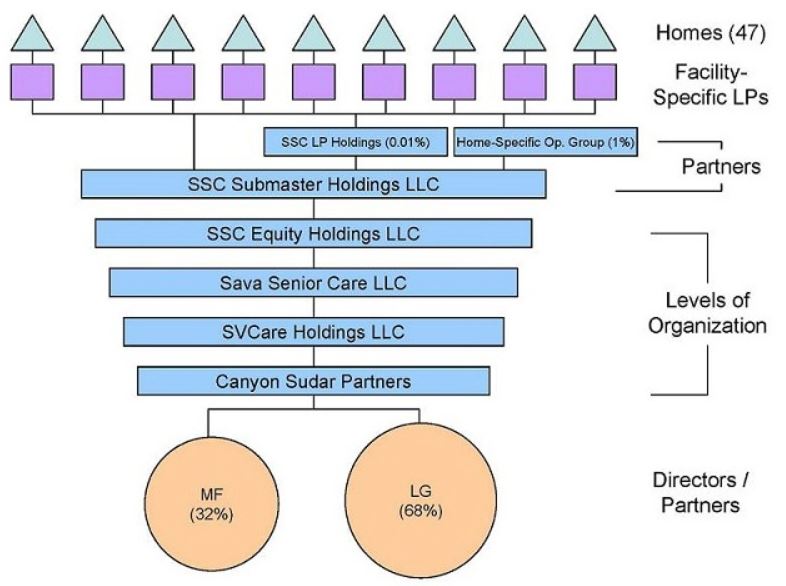Do Nursing Homes Put Profits over People?
It is no secret that in recent years, more and more nursing homes have been built or bought by for-profit organizations and entities. Investment bankers have made a considerable investment in the long term care industry. Obviously, for-profit nursing home investors are mainly focused on making money. However, this profit-driven focus can result in bad care and systemic understaffing of facilities.
While non-profit nursing homes can still be found across the country, the presence of for-profit care has ballooned since the turn of the century, and this is having significant consequences on the residents who rely on these facilities for care.
For Profit Nursing Homes Historically Have Focused on Profits
Statistically, residents receive better care in non-profit facilities when compared to for-profit nursing homes.
Approximately 70% of the nation’s 15,000+ nursing homes are for-profit, and in reality, this shift began with an amendment to the Social Security Act in 1950 that allowed nursing homes to directly receive and collect checks from places like the Veteran’s Administration—on behalf of their residents. In other words, by serving as a middleman between these checks and the residents they were intended for, nursing home owners could siphon money into their own pockets.
The History of Deregulation and Understaffing of Nursing Homes via Medicare and Medicaid
Privatization of skilled nursing facilities generated the creation of what could truly be called a nursing home mafia, attaching themselves to the newly minted Medicaid and Medicare programs within their first year of existence. The Social Security Administration had anticipated spending between $25 million and $50 million on care for nursing home residents in the first year of the programs. However, the mafia-like webs of related companies tapped this golden opportunity for cash flow, and the two services spent nearly $300 million that year.
In order to keep the cash flow moving, many high-profile tycoons bought, sold, reorganized, and otherwise shifted their assets to continue selling nursing homes for higher and higher profits. This profit-incentivized grab for facilities coincided with a generalized lack of regulations that allowed administrators to keep their standards lax for the sake of money. This leniency in the standard of care occurred just as Congress cut Medicaid spending in the 1990s, which disproportionately impacted skilled nursing facilities. Unfortunately, when Congress tightened its purse strings on funding, the first things to go in nursing homes were critical staff and facility improvements.
As Staff Gets Cut, Nursing Home Accidents Occur
Cases of elder abuse more than doubled in the four years between 1996 and 2000, and from ’90 to ’98, lawsuits and legal costs for pursuing justice against nursing homes rose ten times in Florida alone. Residents are often evicted and bounce from nursing home to nursing home—wherever they will be the most profitable. The majority of states have minimum requirements for staffing levels within their nursing homes, but some facility chains have no compunction about directly ignoring these requirements in a bid to cut payroll costs. This slash and burn method has gradually cut down the quality of service at nursing homes for the sake of generating as much profit as possible which in turn leads to preventable injuries like bed sores, falls, and even wrongful death.
Real Cases of Abuse and Neglect Stemming from Understaffing
It should come as no surprise, then, that even before the coronavirus made nursing home quality measures even harder to achieve, these facilities were struggling to provide the bare minimum in support and care to their residents. Genesis Healthcare, a for-profit conglomerate boasting 357 facilities under its advisement, saw facilities like its Colonial Hill Center struggling at a ratio of one staffer per 39 residents.
In a separate facility in Pennsylvania, the ratio was closer to one staffer per 22 residents—when the best care is achieved at a ratio of one to three. A local news source reported that eight staff members came forward to share that many residents were going months at a time without baths, and nearly a quarter of residents in many nursing homes were losing five percent of their bodyweight or more in the span of just three months.
Nursing Homes Play a Corporate Shell Game to Hide Assets and Duck Judgments
 Nursing homes have used the coronavirus outbreak to claim legal immunity from occurrences of malnutrition, bedsores, falls, and other injuries that have been present long before COVID-19 even appeared. And they have gotten creative in their means of generating further profit, such as billing for the higher-paid “ultra high” services for residents and then simply providing the same treatment to those residents as all others.
Nursing homes have used the coronavirus outbreak to claim legal immunity from occurrences of malnutrition, bedsores, falls, and other injuries that have been present long before COVID-19 even appeared. And they have gotten creative in their means of generating further profit, such as billing for the higher-paid “ultra high” services for residents and then simply providing the same treatment to those residents as all others.
Some homes have intentionally taken an eroding policy in liability insurance, which lets them deduct any legal fees they accrue during lawsuits, from their own policy limit. With this strategy, nursing homes can suddenly alert plaintiffs suing them that they have no more money. Many nursing home lawyers will stop pursuing a case once an eroding policy appears.
Nursing home owners also shelter money and assets in other, related companies. The nursing homes continue to shuffle their assets and organizational structures so that they appear poorer—with the intent of reducing lawsuits. This strategy has also worked; the number of suits against nursing homes using this method has decreased, because fewer people go after them when they are no longer worth billions of dollars.
Do Not Remain Silent in the Face of Potential Nursing Home Negligence
As the focus on profit over quality care continues to expand, it is the job of lawyers and politicians to continue prosecuting nursing homes that do not provide an adequate quality of life to their residents. This process took years to get to its current point, and it will take arduous and consistent effort to effect change in the opposite direction.
If your loved one suffered abuse in a nursing home, please call Senior Justice Law Firm toll free at 888-375-9998 or chat with one of our attorneys on our website today. Together we can raise awareness and demand accountability for nursing home negligence.


